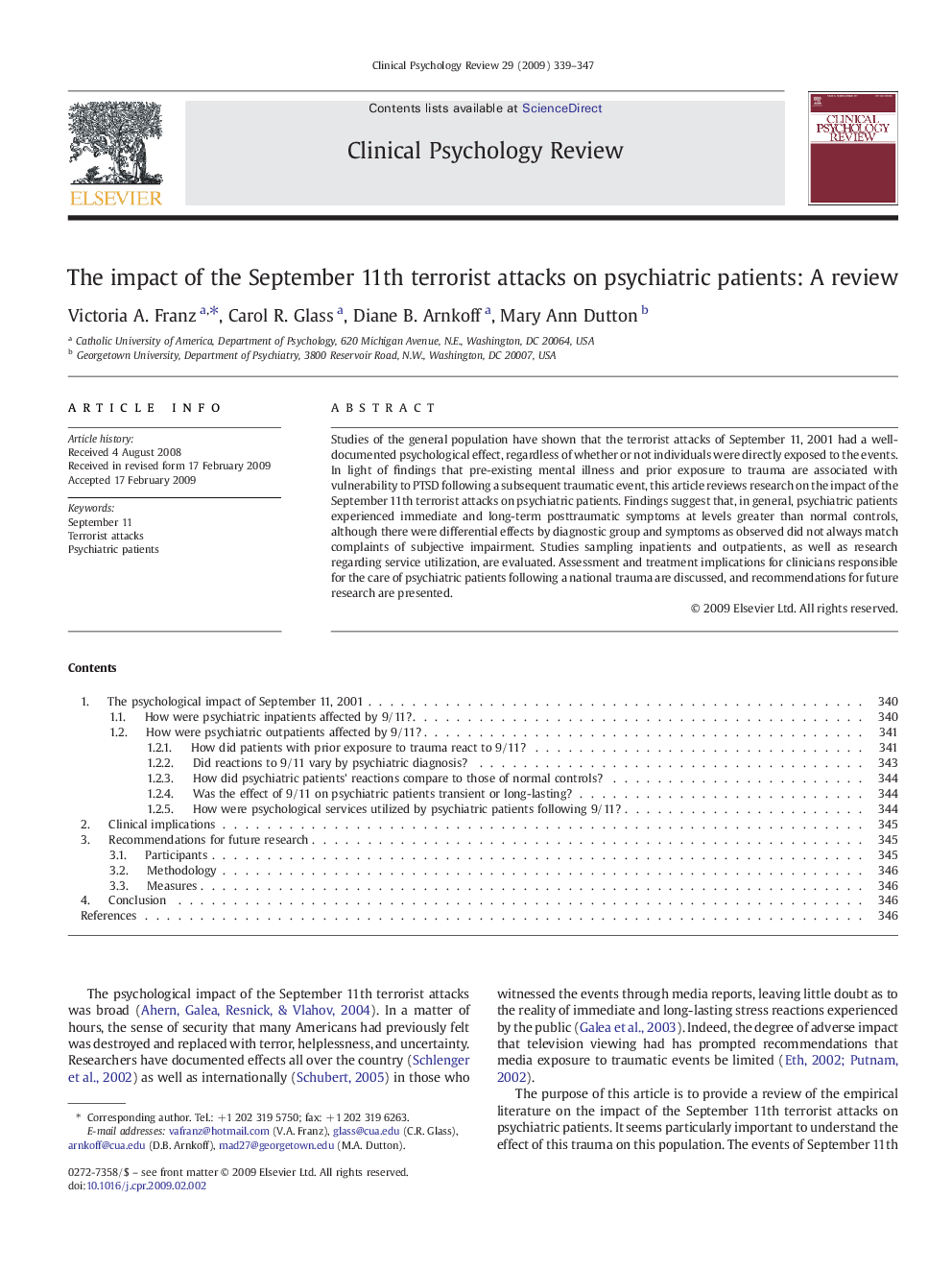| Article ID | Journal | Published Year | Pages | File Type |
|---|---|---|---|---|
| 903958 | Clinical Psychology Review | 2009 | 9 Pages |
Studies of the general population have shown that the terrorist attacks of September 11, 2001 had a well-documented psychological effect, regardless of whether or not individuals were directly exposed to the events. In light of findings that pre-existing mental illness and prior exposure to trauma are associated with vulnerability to PTSD following a subsequent traumatic event, this article reviews research on the impact of the September 11th terrorist attacks on psychiatric patients. Findings suggest that, in general, psychiatric patients experienced immediate and long-term posttraumatic symptoms at levels greater than normal controls, although there were differential effects by diagnostic group and symptoms as observed did not always match complaints of subjective impairment. Studies sampling inpatients and outpatients, as well as research regarding service utilization, are evaluated. Assessment and treatment implications for clinicians responsible for the care of psychiatric patients following a national trauma are discussed, and recommendations for future research are presented.
